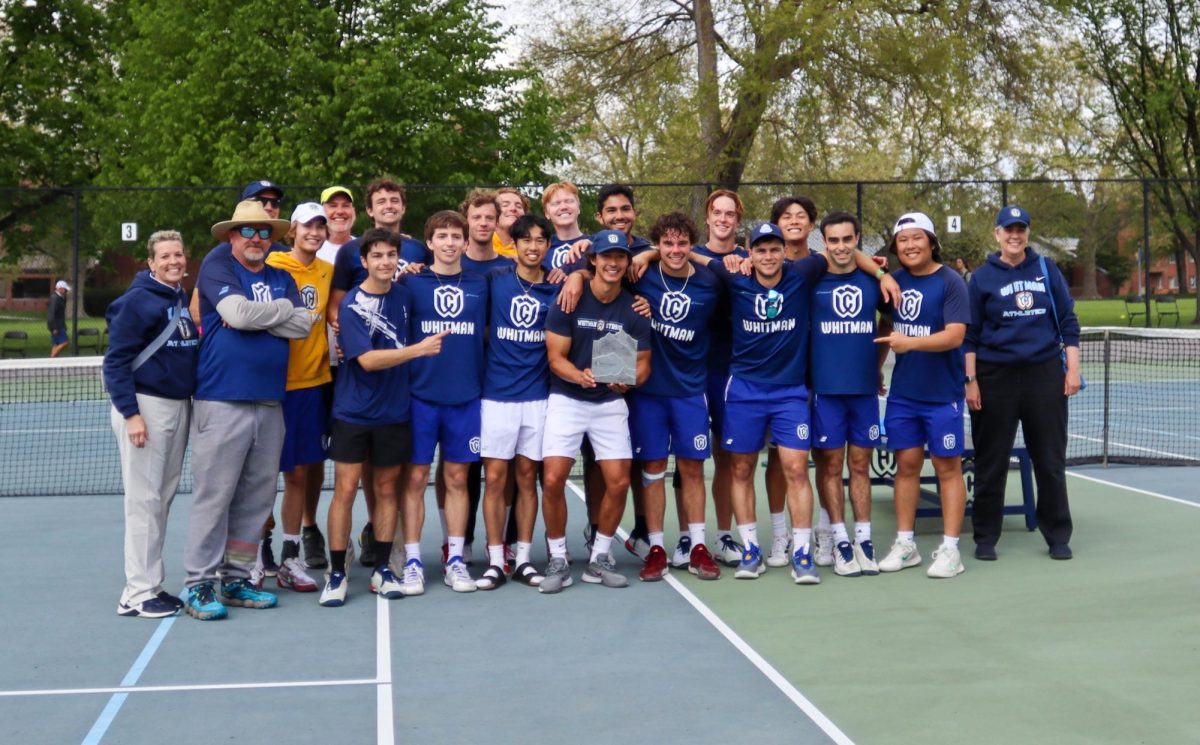Whitman varsity athletes are all about routine: get up, go to class, eat, go to practice, eat, do homework, sleep, repeat. This cycle allows them to continuously maintain their studies and work on their game.
For the Whitman winter sports teams, however, there are two annual disturbances to this routine, and they’re called the holidays.
While most Whitties return home to recharge and relax during the Thanksgiving and winter holiday breaks, winter sports athletes are entering the peak of their training for the conference season, which gets started in early December and begins to pick up in January.
Winter sports coaches Michelle Ferenz, Eric Bridgeland and Jenn Blomme all have their own way of keeping their athletes training and staying in shape in anticipation of the conference season. For all three coaches, the main goal is to get the athletes working on individual improvements, so that they can build off of that as a team once everyone is back on campus.
“The holiday break is a good chance for us to catch our breath,” said Ferenz, women’s basketball head coach. “November and December are very busy athletically and academically, and I think we all need a few days after finals to rest and recharge.”
For the men’s basketball players, the holidays hardly change anything about the team’s training schedule, the only change being an early practice on Thanksgiving Day.
“[We want to] improve a little bit every day,” said Bridgeland. “Expectations are to do what we do and take away what [our opponent] does best.”
Many athletes feel similarly to their coaches, keeping up the mindset that the holiday breaks are just part of the package of being on a winter sports team. The breaks are viewed as a chance to focus on individual improvement, in addition to the full-team dynamic.
“I think athletes take the holidays very seriously,” said senior basketball player Jenele Peterson. “Because we do not get Thanksgiving off and only about five days of winter break we continue to practice and workout just as hard. With more time in our days because of no classes, we have time to workout more as a team and individually to prepare for conference.”
“We work hard all year to play well in January,” said Ferenz. “So it is important that [the athletes] work out when they go home and that they are ready to go again when they get back.”
While the holiday breaks don’t present many changes or interruptions for many athletes, there are some who annually encounter challenges, such as finding training locations and having to be away from the rest of the athletes in a team sport.
“One of the main reasons I love swimming is the team aspect,” said sophomore swimmer Libby Arnosti. “Training alone during breaks is not usually as fun, but it does offer an opportunity for me to do some technical work and other specific things for myself. It can be harder to find internal motivation to train during breaks without the team providing me with external motivation, but obviously I keep in mind the importance of maintaining my strength and conditioning so that I make the best of the season.”
Overall, winter sports athletes and coaches view the holiday breaks as something that will always come, so everyone might as well work with them instead of fight the prospects the breaks present.
“[Holiday breaks are] just part of the season and I don’t find it disruptive,” said Ferenz. “I think we all appreciate the break.”
“It’s a little unfortunate that we have two significant breaks during our season,” said Arnosti. “Particularly winter break, which is so long and coincides with the peak of our training. But it forces us to really take responsibility for our swimming. I think the training we do on our own during these breaks can make or break our season.”
The men’s and women’s basketball teams begin Northwest Conference play December 3 with away games at Linfield College. Men’s and women’s swimming travel to Federal Way, Wash. for the Husky Invitational December 3-5 before returning home to face Linfield College in a dual conference meet January 14.


